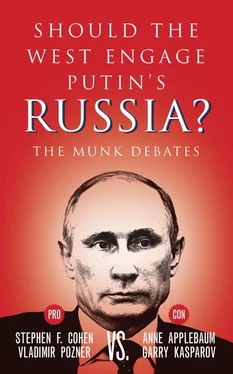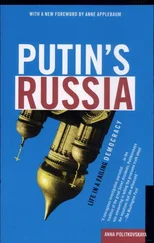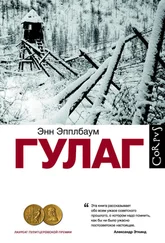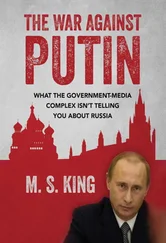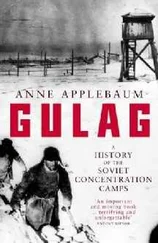GARRY KASPAROV: The partition of Yugoslavia involved many countries. There was a general consensus that this was the right thing to do, based on facts accumulated over years about potential genocide. Europe did not want to see that continue. We should not forget that the partitioning of Yugoslavia has given us seven republics, including Kosovo.
It would be intellectually dishonest to say that every border that was created is perfect. It’s the same with the Soviet Union. But the only way to avoid massive bloodshed is to accept these borders. The best way to move forward is to co-operate and find a way for all of these countries to join the European Union, or at least play by the rules to encourage co-operation. Russia acted unilaterally in Georgia. And it was an invasion that had no grounds because there was not a genocide or a potential threat. What is happening in Crimea is the exact opposite of what happened in Kosovo.
RUDYARD GRIFFITHS: And finally, where do you think this tension between East and West goes from here? Are we into the early phases of an extended kind of Cold War? Or is this something that could resolve itself sooner rather than later?
GARRY KASPAROV: Something you just said caught my attention; you said East and West, which was the Cold War. Today, we are no longer dealing with East and West. Who is this East? Russia? Even Ukraine is now fighting Russian invasion. So it is no longer the same lines dividing the world like the Berlin Wall. We now have guys — including Putin — who are fighting the very core values of the free world. The North Korean family dictatorship, ISIS, al Qaeda, and the Venezuelan dictatorship would also fit into this category.
So it is a much broader picture, and it doesn’t necessarily have the same geographical division as before. A huge success of global democracy is that Russian is still the dominant language in many of the eastern European nations, including Ukraine. Ethnic Russians living in Ukraine are now fighting and willing to die to secure their right to live in the free world. This is the future I want to see. I believe that many Russians on the other side of the Ukrainian border will eventually have the same desires as Ukrainians. And then I will be the happiest man to talk about the engagement of my country. I want to make sure that the great culture of Russia, including science and other important traditions, will be able to benefit everybody on the planet.
RUDYARD GRIFFITHS: Great. Well, Garry, that is an optimistic note for us to end on. We look forward to hearing more from you in the debate tonight. Thank you for coming to Toronto.
STEPHEN F. COHEN
IN CONVERSATION WITH
RUDYARD GRIFFITHS
RUDYARD GRIFFITHS: Stephen F. Cohen, the celebrated American scholar of Soviet and post-Soviet Russia, is with me now. He is also a contributing editor at The Nation magazine. Stephen, great to have you in Toronto.
STEPHEN F. COHEN: I don’t think anybody has ever called me celebrated.
RUDYARD GRIFFITHS: Well, I certainly would, based on the books you’ve published.
STEPHEN F. COHEN: There are a lot of adjectives floating around about me, but “celebrated” I have not heard yet. Thank you for having me.
RUDYARD GRIFFITHS: Well, you are celebrated here in Canada. Let’s talk about tonight’s debate. The audience is no doubt going to hear from your opponents that the actions of this regime are beyond the pale and that the world should respond aggressively and assertively to Russian actions in Crimea and eastern Ukraine. How do you respond to their hardline stance?
STEPHEN F. COHEN: It’s beyond hardline — it’s reckless. To respond to this crisis, which was created by the West — not Russia — would flirt with nuclear war. The Russians have made this clear. This is the first time I have heard that kind of talk since the Cuban Missile Crisis, and I have been around for a long time. So that tells us where we’re at right now.
The Putin regime, as it has been referred to, has been preposterously demonized in the West, particularly in the United States. I think they are a little calmer about him in Europe, with the exception of maybe in Poland, or half of Poland, I should say. The regime in Moscow is not monstrous; this is a traditional Russian regime. Anybody who thinks that the Putin regime is beyond the pale evidently came to adulthood during the Gorbachev period — the only period of real democratization in Russia. Ms. Applebaum and Mr. Kasparov were born in and lived through the Soviet period, so why would they think this regime is beyond the pale? This is something they have conjured up out of their own misreading of history, and their own ideology. Mr. Kasparov likely has resentments, which I understand, because he is a Russian. He is a very disappointed man. Things in Russia didn’t go the way he thought they would in the 1990s.
But I think any rational person understands that the crisis in Ukraine, which is mainly what we’re talking about, though there are other resentments against Putin, is something that both Russia and the West are responsible for. And that means that if both sides are responsible, there is territory to negotiate this crisis. But my opponents don’t want to negotiate. If we follow the logic of what they say, it sounds like they want to go to war; it’s almost as though they want a showdown — military or otherwise — with this hated Putin. That worries me, because we should not be thinking about conflict in the world today in such a way.
RUDYARD GRIFFITHS: How do you see that showdown potentially happening? Is this about the Baltic States? Is it about the situation in Ukraine right now? Or is it something else entirely?
STEPHEN F. COHEN: So as far as I can empirically tell, Russia represents no threat to the Baltic States whatsoever. This notion that somehow Ukraine is also about the Baltics was conjured up by those members of NATO that have wanted to move front-line, permanent NATO military infrastructure and bases to the Baltics right on Russia’s borders for fifteen years, but have been prohibited from doing so by an agreement with Russia. The West signed an agreement when NATO was expanded that there would be no such bases that close to Russia.
And we know who these people are, and what countries they live in. We can name names; it’s not a secret. The three Baltic countries themselves would love to have NATO bases; everybody wants NATO bases. It’s great for the economy — you don’t have to pay for your own defence, since lots of Americans come and spend money. Merchants do well. It’s a windfall, but it’s reckless militarily. However, the Baltics, Poland, and now Sweden, which is not a member of NATO, all want NATO’s protection. There is a strong faction in Sweden that wants to be a member of NATO so that they can show that the threat to the Baltics is real, because it’s kind of hard to demonstrate right now.
Remember when they thought they saw a submarine in the lagoon and never found it? They are running these fictitious threat operations that the Russians are coming, but it simply isn’t true. Now Ukraine is horribly serious. It’s a new Cold War right on Russia’s borders. So what sort of bad resolution do I see here? I think it could be some kind of war between the United States, NATO, and Russia.
There is very strong pressure on President Obama to send three billion dollars’ worth of weapons to Kiev to fight against the Russian-backed rebels in the east. Ukraine has no army; it has been defeated twice by rebels, so it is not clear who would use these weapons — probably the battalions. But the battalions are ultra nationalist, ideological fighters, and I’m not sure you want to give them weapons.
But Moscow perceives this escalation of arming Kiev as requiring a military response. Well, what would that military response be? If you read the Russian press, the generals are telling Putin if the Ukrainian military is rebuilt and rearmed to that degree, the defensible front line where the ceasefire is now is essentially no longer defensible. So they are saying to Putin: Mr. President, we need to help the rebels extend their defensible front line, at a minimum because it’s on the sea. And they would have the seaport.
Читать дальше
